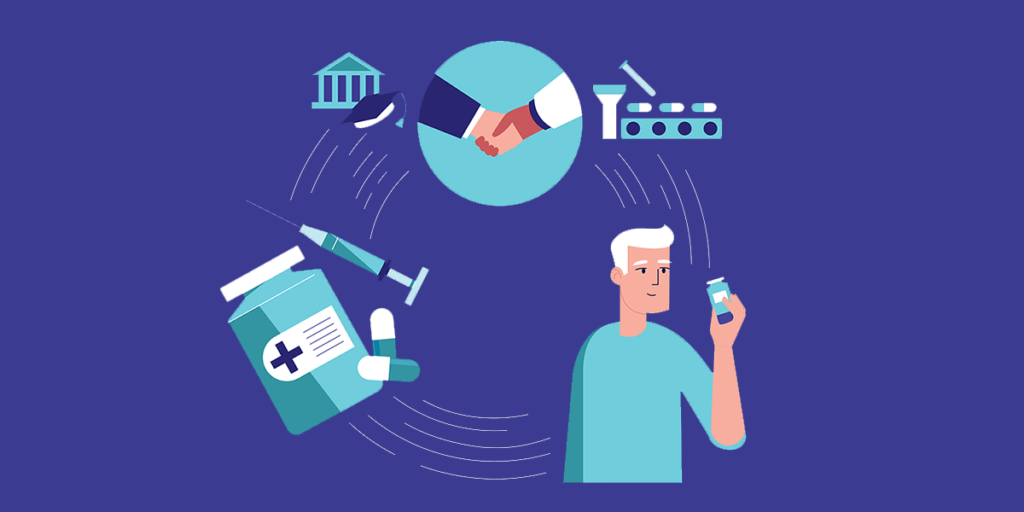
Dutch expertise in the field of drug development is too fragmented, with researchers’ efforts to get their discoveries to the patient being frustrated. National coordination is therefore needed to support researchers and promote cooperation. That will make drug development faster and more effective and give patients better access to new therapies. This is what the Royal Netherlands Academy of Arts and Sciences (KNAW) calls for in its new advisory report “Greater Efficiency through Innovation”.
According to the report, the process of developing new drugs is costly, full of obstacles, and takes a long time. There may be as many as 15 years between the initial idea for a new drug to its being administered to patients. During that process, up to ten thousand other prospective drugs may have been rejected, at a cost of up to EUR 2 billion. Innovative technologies have created new opportunities for drug development in recent years, but they have not always led to new therapies, lower costs, or quicker access for the patient.
How can this be made more efficient?
In its report, the KNAW lists where efficiency can be improved: during the development of new drugs, during testing of their effectiveness and safety, and in the process after they have been authorised for sale and administration to patients. The report also discusses how science can make these steps more efficient, without that being at the expense of quality and safety. It also emphasises the importance of a patient-oriented approach throughout the drug development process.
According to the report, there are opportunities that researchers are not yet utilising sufficiently or are unable to make use of, for example in the development, validation, and implementation of new methods. The report notes, for example, that during the early development phase of a drug, there is a need for models with greater predictive value for actual clinical practice. Smarter use can also be made of real-world data. Science can also make a major contribution to fair pricing models.
Coordinating centre of expertise
The advisory report calls for open dialogue between researchers, the pharmaceutical industry, and regulators. A coordinating centre of expertise can help, with its purpose being to support cooperation, give direction, and assist in decision-making. Such a coordinating centre of expertise can develop the infrastructure needed to ease the development path for new therapies. Jaap Verweij, chair of the advisory committee says: “Within such a centre, you can pool expertise, create facilities, and make expertise easily accessible to all the parties concerned. It can also assist in making new therapies available for patients more quickly. Ultimately, safe, effective, and accessible new drugs are often literally a matter of life and death for patients, and therefore for society in general.”
Presentation
The advisory report will be presented at a hybrid meeting at the Trippenhuis Building on 5 October. Representatives from the research world, patient associations, and policymakers will speak about the problems and opportunities they have identified. During a panel discussion, they will discuss what steps are needed to improve access to new drugs.
Download the report.